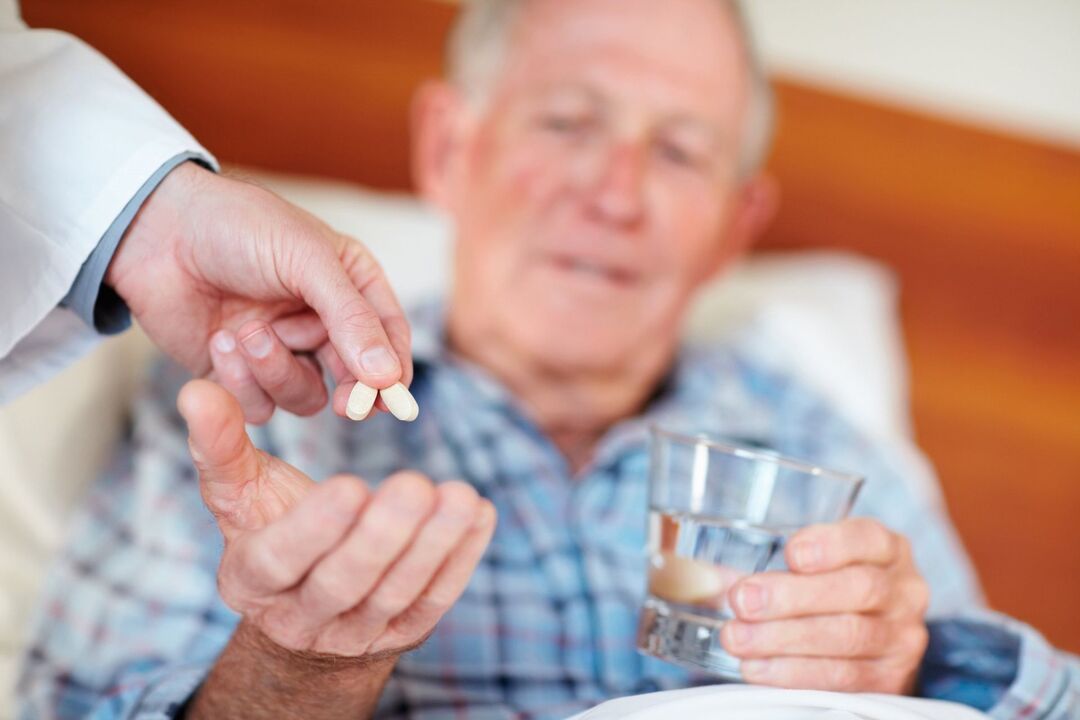
Prostate adenoma and inflammation of the prostate are two diseases that cause a real anxiety attack in men. These "male" pathologies are not absolutely analogous, although in both cases the prostate gland is involved and you must take medications to treat prostatitis and prostate adenoma, use additional therapeutic methods, and prescribe surgery for complications. However, if we talk about an adenoma, they are a benign tumor, while inflammation of the prostate is an inflammatory process that occurs in the prostate.
Both diseases are mostly diagnosed in men aged 45 or 50, while many men mistakenly believe that adenoma is a complication of prostatitis. This misconception is often based on the similarity of symptoms - both pathologies are accompanied by difficulty urinating and pain. There are also some similarities and fundamental differences between the treatments.
Principles of disease therapy
Consider the main stages of therapy for prostate adenoma and prostatitis. In both cases, the treatment must be comprehensive, which makes it more effective. Acute prostatitis in men can be treated with antimicrobial therapy with broad-spectrum drugs, anti-inflammatory drugs, and desensitizers. If an abscess is suspected, the source of the purulent inflammatory process is required to be opened.
The goal of medication is to stabilize the patient's condition by lowering the temperature, stopping the inflammation, and normalizing the general condition. The doctor confirms the need to remove the abscess by rectal and instrumental examination, laboratory tests. After the autopsy, a drain is placed in the hospital to drain the pus. Once the prostate is released from the pus, the inflammatory processes stop, the drainage stops, after which the wound heals in about a week.
Chronic prostatitis in men requires a much longer treatment time due to changes in normal lifestyle and diet. The main goal of therapy is to eliminate congestion. To do this, use:

- Taking antimicrobials that last for two to eight weeks.
- Devices for improving blood circulation.
- Prescribing nonsteroidal anti-inflammatory drugs.
- Application of physiotherapy methods - magnetotherapy and laser treatment. Ultrasound, reflexology and hirudotherapy are also recommended.
- Gland massage.
Modern therapeutic methods guarantee the establishment of a sufficiently stable remission, which can last up to years, and complete recovery with the successful coincidence of the conditions.
If prostate adenoma is detected in the early stages of development, the most effective treatment is medication. In men, as in the treatment of prostatitis, physiotherapy and diet therapy are prescribed and lifestyle changes are recommended. The purpose of taking the medication is to slow down the growth and reduce the volume of the gland, to reduce the severity of the disorders that occur during urination, for which the following are used:
- Antimicrobials.
- Medicines that correct hormonal metabolism to make the gland smaller.
- Medicines to improve the tone of the prostate and urethra are recommended to stabilize the urinary process.
- Herbal capsules, the difficulty of working with which is due to the fact that their effect is not fully understood.
- Photodynamic therapy is prescribed.
- Ozone therapy, gym therapy
In both cases, folk prescriptions can be used as an additional treatment after consultation with your doctor. Medications used to treat prostatitis and adenoma work best when the victim rejects the addiction.
Use of antibiotics in the development of prostatitis and glandular adenoma
Consider what medications you should take to treat prostatitis and prostate adenoma, and start with antimicrobials. Antibiotic drugs for prostate adenoma are used only if a bacterial infection is associated with the disease, which is considered to be quite common. Antimicrobial drugs for prostatitis are among the main points of therapy. In both cases, the following can be assigned:
- Penicillin group drugs. They are available as tablets, injections and oral suspensions.
- Substances belonging to the tetracycline group.
- Cephalosporins. Essential drugs for prostatitis. It is prescribed when inflammation is provoked by Gram-positive or Gram-negative bacteria, anaerobic pathogens. The substances should be administered parenterally.
- Fluoroquinolones. They are prescribed in the presence of ureaplasma, chlamydia, gardnerella, staphylococcal or streptococcal pathogens, Escherichia coli or mycoplasma.
- Macrolide group. The advantage of the funds is their low toxicity and their ability to accumulate in the prostate. The drugs are prepared in tablets or solutions.
- Aminoglycosides. This is an excellent option if the pathogen of the inflammation is not identified or there are more.
Treatment of these diseases with antimicrobial drugs can remove many negative symptoms but has side effects. In most cases, this is a disruption of the digestive system and the development of dysbiosis.
Therapy with inhibitors and blockers
Among the treatments for prostatitis and prostate adenoma, α1-adrenergic blockers and inhibitors. The first ones have a relaxing effect on the muscle tissue of the prostate gland, thanks to which muscle cramps can be eliminated quickly, which normalizes the 85% disturbed urination process. In addition, such medications can lead to a sharp drop in blood pressure, which should be considered when prescribing.
Drugs for the treatment of prostate adenoma include 5-alpha reductase inhibitors. These bases are most commonly used because they effectively prevent the development of pathology, help reduce the size of the prostate, and help normalize the process of urination. Inhibitors are very effective treatments, as more than 50% of victims do not need surgery after a therapy. An even greater effect can be obtained with the combined treatment methods, and the results obtained are much more stable than with the mono-treatment.
Preparations for the treatment of pain and inflammation of the prostate
Therapy for the pathologies studied involves the removal of pain and the cessation of inflammatory processes. The pain is especially unbearable when the disease gets worse, and antispasmodics help relieve it. They help relax the smooth muscles of the prostate and improve blood circulation.
Inflammatory processes in the prostate are characteristic of prostatitis. If you ignore the treatment, they will progress, with pain, decreased erectile function, and urinary retention in the background of the compressed ducts. Often when recommending treatment for prostatitis, doctors prescribe medications to relieve the inflammation, which in many cases allows the negative symptoms to be removed.
It is also an inexpensive and effective anti-inflammatory drug that is an anti-inflammatory, non-steroidal, antipyretic agent. Any medication should be taken strictly as directed and under the direct supervision of a physician.
Herbal preparations used in treatment
Anti-adenoma drugs that have a noticeable positive effect - herbs, of which the extract from the palm of Permikson stands out.
Can be used:
- It is a drug that positively affects the metabolism of the system and is also a booster. Contains sandalwood, sage, ginseng, ginger, cloves, calamus and other ingredients.
- A dietary supplement medicine that contains more than 40 ingredients, most of which are of plant origin.
- The drug is used as an antiseptic, analgesic and immunomodulator with antipyretic and anti-inflammatory properties. The product contains burdock root, plum and ash bark, juniper berries and bear grape leaves.
This is not a complete overview of medications that can be used to treat prostatitis and prostate adenoma. However, these should only be prescribed by a doctor to avoid unpleasant and dangerous consequences.
























